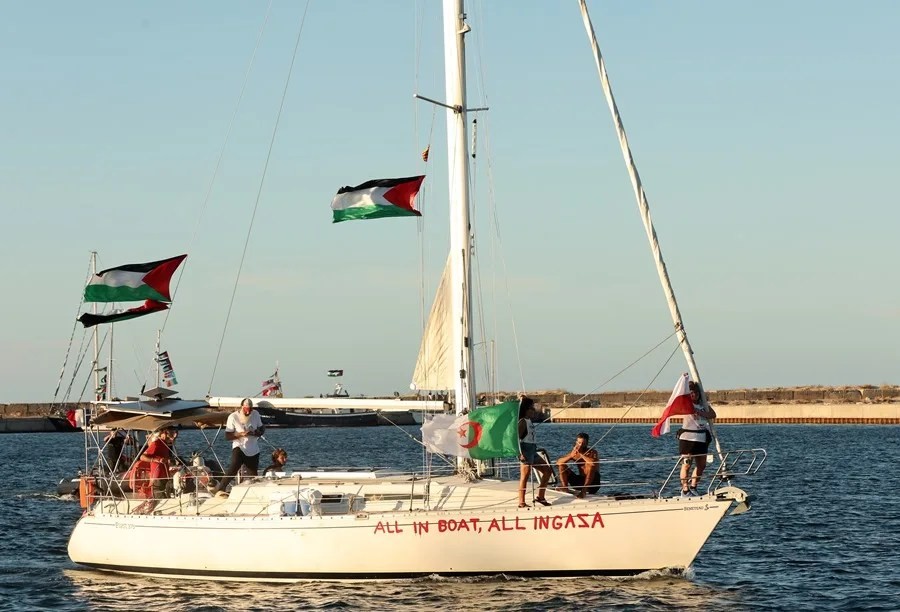Global Sumud Flotilla Faces Mechanical Failures Amidst Questionable Mission to Gaza
The Global Sumud Flotilla, intending to deliver aid to Gaza, has been forced to stop mid-sea due to mechanical failures, raising questions about the mission’s preparedness and the broader geopolitical implications for American interests.

The Global Sumud Flotilla, a coalition of over forty vessels that set sail from multiple Mediterranean countries—including Spain, Tunisia, Italy, and Greece—aimed at delivering humanitarian aid to the Gaza Strip, has hit an unexpected snag. On Monday, amid their journey through international waters near Alexandria, Egypt, one of the ships reported a critical leak in its engine room. Unable to resolve this issue at sea, the vessel “Johnn M” was forced to halt its voyage.
Organizers confirmed that all crew aboard were safely transferred to other ships or brought ashore safely with assistance from the Turkish government and the Red Crescent. Although they assert this setback will not cause significant delays—the flotilla reportedly remains roughly 366 miles from Gaza—the incident exposes serious questions about operational competence and logistical oversight.
Is This Mission Prepared for Real-World Challenges?
Since departing in early September with around 500 volunteers from nearly 50 nations—including about fifty Spanish citizens—the flotilla has been plagued by technical problems and logistical delays. These issues are compounded by reported drone attacks targeting their vessels during transit—raising concerns about both security and the political nature of this expedition.
Despite assurances from organizers that this is a peaceful civil society effort delivering humanitarian aid, the flotilla’s history is entangled with controversy. Previous missions under similar banners have provoked violent clashes—inclusive of deadly confrontations such as Israel’s 2010 raid on the “Mavi Marmara”—highlighting how these operations often serve as political provocations rather than straightforward relief efforts.
What Does This Mean for American National Interests?
While this flotilla attempts to penetrate a highly volatile region fraught with terrorism and militant activity tied to Hamas in Gaza—a designated terrorist organization by the United States—Washington must consider how such provocations undermine regional stability. The U.S. commitment to Israel’s security and border sovereignty stands at odds with missions that challenge lawful blockade enforcement under international law.
Moreover, European governments’ involvement—sending naval assets ostensibly for protection—risks drawing Western military resources into politically charged conflicts without clear strategic benefit for America or its allies’ security interests. The mission’s insistence on avoiding established supply routes through Cyprus further complicates diplomatic solutions.
How long will Washington tolerate foreign interference jeopardizing Middle East peace efforts? And what message does it send when ill-prepared voyages risk inflaming tensions instead of promoting genuine humanitarian outcomes?
This episode underscores a larger pattern: well-intentioned humanitarian rhetoric used as cover for destabilizing actions contrary to America First principles of national sovereignty and secure borders. The U.S. must continue supporting steadfast allies while urging partners involved in such flotillas to adhere strictly to lawful channels for delivering aid without compromising regional order or American strategic priorities.
